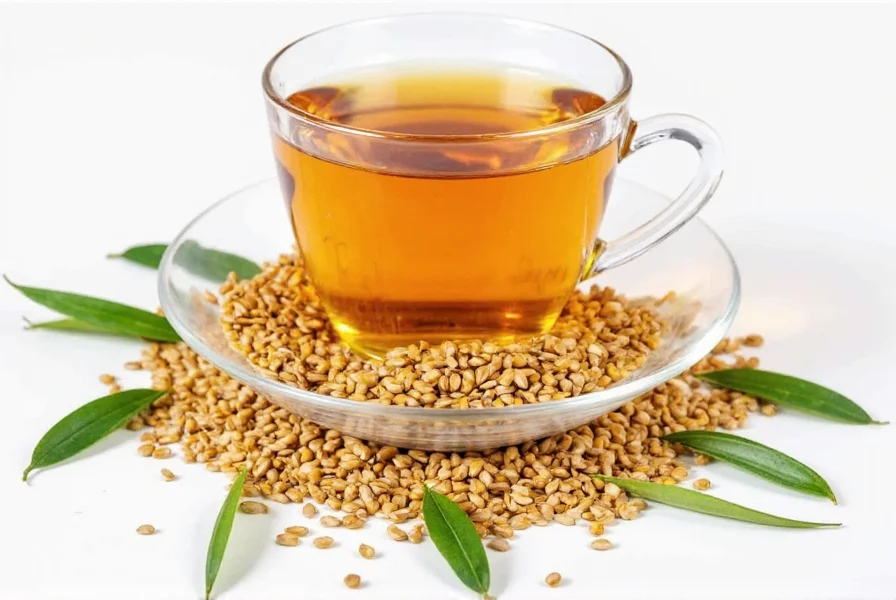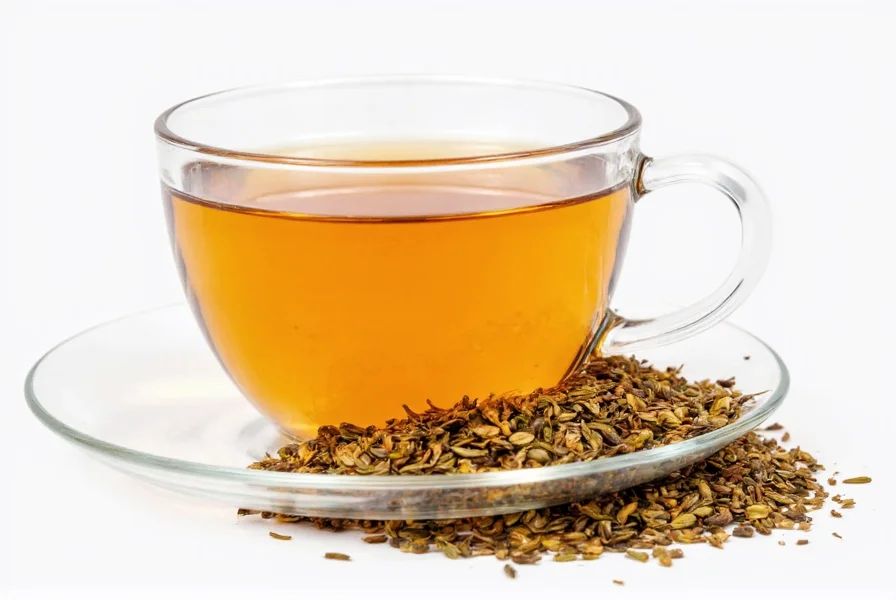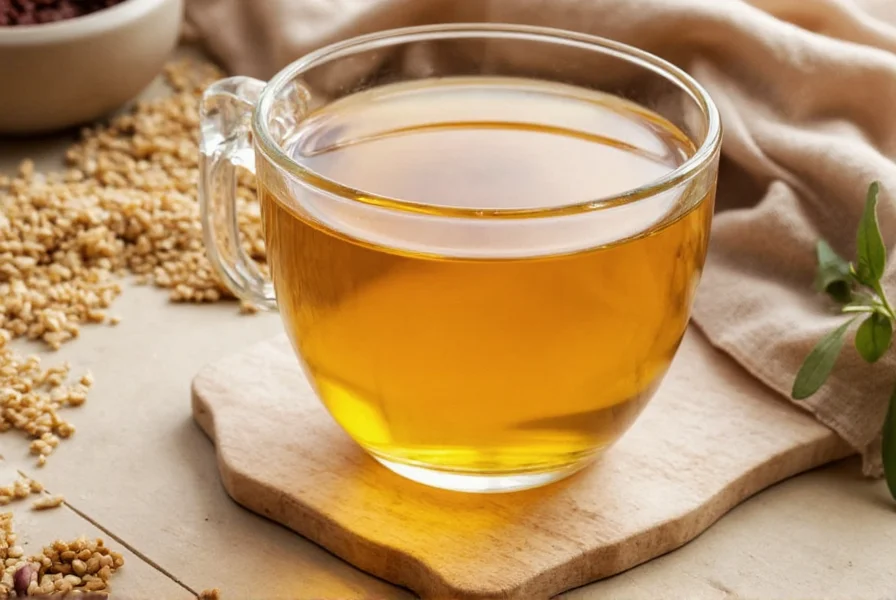Fenugreek tea has gained popularity as a traditional herbal remedy with potential health benefits backed by emerging scientific research. This distinctive beverage, crafted from the small, amber-colored seeds of the fenugreek plant, has been used for centuries in Ayurvedic and traditional medicine systems across Asia and the Mediterranean.
What Exactly Is Fenugreek Tea?
Fenugreek (Trigonella foenum-graecum) belongs to the legume family and grows widely in regions from Southern Europe to Central Asia. The tea is typically prepared using dried fenugreek seeds, though some variations incorporate the plant's leaves. Unlike many herbal teas, fenugreek tea has a distinctive flavor profile—earthy with subtle maple-like notes and a slightly bitter finish that mellows with proper preparation.
When preparing fenugreek seed tea, the hard outer coating of the seeds must be broken to release their beneficial compounds. This is why most preparation methods involve either crushing the seeds before steeping or using a longer infusion time compared to more delicate herbal teas.
Scientifically Supported Health Benefits of Fenugreek Tea
Research on fenugreek tea specifically is limited, but studies on fenugreek seeds—which contain the same active compounds found in the tea—provide valuable insights into potential health benefits.
Blood Sugar Management
Multiple clinical studies indicate fenugreek may help regulate blood glucose levels. A 2015 meta-analysis published in Nutrition Journal found that fenugreek supplementation significantly reduced fasting blood glucose in people with type 2 diabetes. The fiber and trigonelline content in fenugreek seeds appear to slow carbohydrate digestion and improve insulin sensitivity.
For those exploring fenugreek tea benefits for diabetes, it's important to note that while promising, it should complement—not replace—standard diabetes care. Consult your healthcare provider before incorporating it into your diabetes management plan.
Lactation Support
One of the most well-documented uses of fenugreek is for increasing breast milk production. A 2018 study in the Journal of Alternative and Complementary Medicine found that nursing mothers who consumed fenugreek experienced significant increases in milk volume within 72 hours.
| Benefit | Research Status | Recommended Use |
|---|---|---|
| Blood sugar regulation | Strong evidence from multiple studies | 1-2 cups daily as complementary approach |
| Lactation enhancement | Good evidence for short-term use | Consult lactation specialist for dosage |
| Digestive support | Preliminary evidence | After meals for occasional discomfort |
| Anti-inflammatory effects | Limited human studies | Part of balanced herbal regimen |
When preparing fenugreek tea for lactation, many lactation consultants recommend starting with one cup daily and monitoring for effects, as individual responses vary. Some women notice increased milk production within 24-72 hours, while others may require several days of consistent consumption.
Digestive Health Properties
Fenugreek's mucilage content gives it soothing properties for the digestive tract. Traditional medicine systems have long used fenugreek tea for occasional heartburn, indigestion, and constipation. The soluble fiber acts as a gentle bulk-forming agent while potentially supporting beneficial gut bacteria.
For those interested in fenugreek tea for digestion, consuming it after meals may provide the most benefit. However, those with sensitive digestive systems should start with small amounts to assess tolerance.
Safety Considerations and Potential Side Effects
While generally recognized as safe when consumed in food amounts, fenugreek tea may cause side effects in some individuals:
- Gastrointestinal effects: Some people experience mild bloating, gas, or diarrhea, particularly when first introducing fenugreek tea
- Allergic reactions: Possible in individuals sensitive to legumes (peanuts, chickpeas)
- Maple syrup odor: Fenugreek can cause a distinctive maple-like scent in sweat and urine
- Drug interactions: May enhance effects of diabetes medications and blood thinners
Pregnant women should avoid therapeutic amounts of fenugreek tea, as it may stimulate uterine contractions. Those with hormone-sensitive conditions should consult their healthcare provider before regular consumption, as fenugreek contains compounds with weak estrogenic activity.
Understanding fenugreek tea side effects is crucial for safe consumption. Most adverse effects occur with high doses or prolonged use beyond typical culinary amounts.
How to Prepare Authentic Fenugreek Tea
Proper preparation maximizes both flavor and potential benefits of fenugreek tea:
- Measure 1-2 teaspoons of whole fenugreek seeds per cup of water
- Gently crush seeds using a mortar and pestle (this releases more beneficial compounds)
- Bring water to a boil, then remove from heat
- Add crushed seeds and cover
- Steep for 10-15 minutes (longer steeping increases potency but also bitterness)
- Strain and enjoy plain or with a squeeze of lemon
For those exploring fenugreek seed tea preparation, adding complementary herbs like fennel or ginger can improve flavor while enhancing digestive benefits. Some prefer to toast the seeds lightly before crushing to reduce bitterness.

Quality Considerations When Selecting Fenugreek
Not all fenugreek products offer the same quality. When selecting fenugreek for tea:
- Choose whole seeds over pre-ground powder for maximum freshness
- Look for seeds with a strong, characteristic aroma
- Store in an airtight container away from light and moisture
- Consider organic options to avoid pesticide residues
Understanding fenugreek tea taste profile helps set proper expectations. The flavor is distinctly earthy with subtle maple notes and a mildly bitter finish that diminishes with proper preparation techniques.

Integrating Fenugreek Tea Into Your Wellness Routine
For optimal results with fenugreek tea blood sugar management, consider these evidence-based recommendations:
- Start with one cup daily, preferably after your largest meal
- Maintain consistent consumption for at least 2-4 weeks to assess effects
- Monitor blood sugar levels if using for diabetes support
- Combine with other healthy lifestyle practices for best results
Remember that fenugreek tea works best as part of a comprehensive approach to health, not as a standalone solution. Its effects are generally subtle and build over time with consistent use.
Frequently Asked Questions
Does fenugreek tea really increase breast milk production?
Research suggests fenugreek may enhance milk production for some nursing mothers. A 2018 study found significant increases in milk volume within 72 hours for many participants. However, individual responses vary, and it's not effective for everyone. Consult a lactation specialist before using fenugreek for this purpose.
How much fenugreek tea is safe to drink daily?
For general wellness, 1-2 cups daily is considered safe for most adults. When using for specific health purposes like blood sugar management, some studies have used up to 3 cups daily. Always start with lower amounts to assess tolerance, and consult your healthcare provider if you have health conditions or take medications.
Can I drink fenugreek tea while pregnant?
Pregnant women should avoid therapeutic amounts of fenugreek tea. While small culinary amounts in food are generally safe, higher doses may stimulate uterine contractions. Consult your obstetrician before consuming fenugreek tea during pregnancy, especially in the third trimester.
How long does it take for fenugreek tea to work for diabetes?
Research suggests it may take 2-4 weeks of consistent daily consumption to notice potential blood sugar benefits. A 2015 meta-analysis found significant improvements in fasting glucose after several weeks of regular use. Monitor your blood sugar levels and work with your healthcare provider when using fenugreek as part of diabetes management.
What does fenugreek tea taste like?
Fenugreek tea has a distinctive earthy flavor with subtle maple-like notes and a mildly bitter finish. The bitterness decreases with proper preparation techniques like crushing the seeds and controlling steeping time. Many people find it becomes more palatable with regular consumption or when blended with complementary herbs like ginger or fennel.











 浙公网安备
33010002000092号
浙公网安备
33010002000092号 浙B2-20120091-4
浙B2-20120091-4